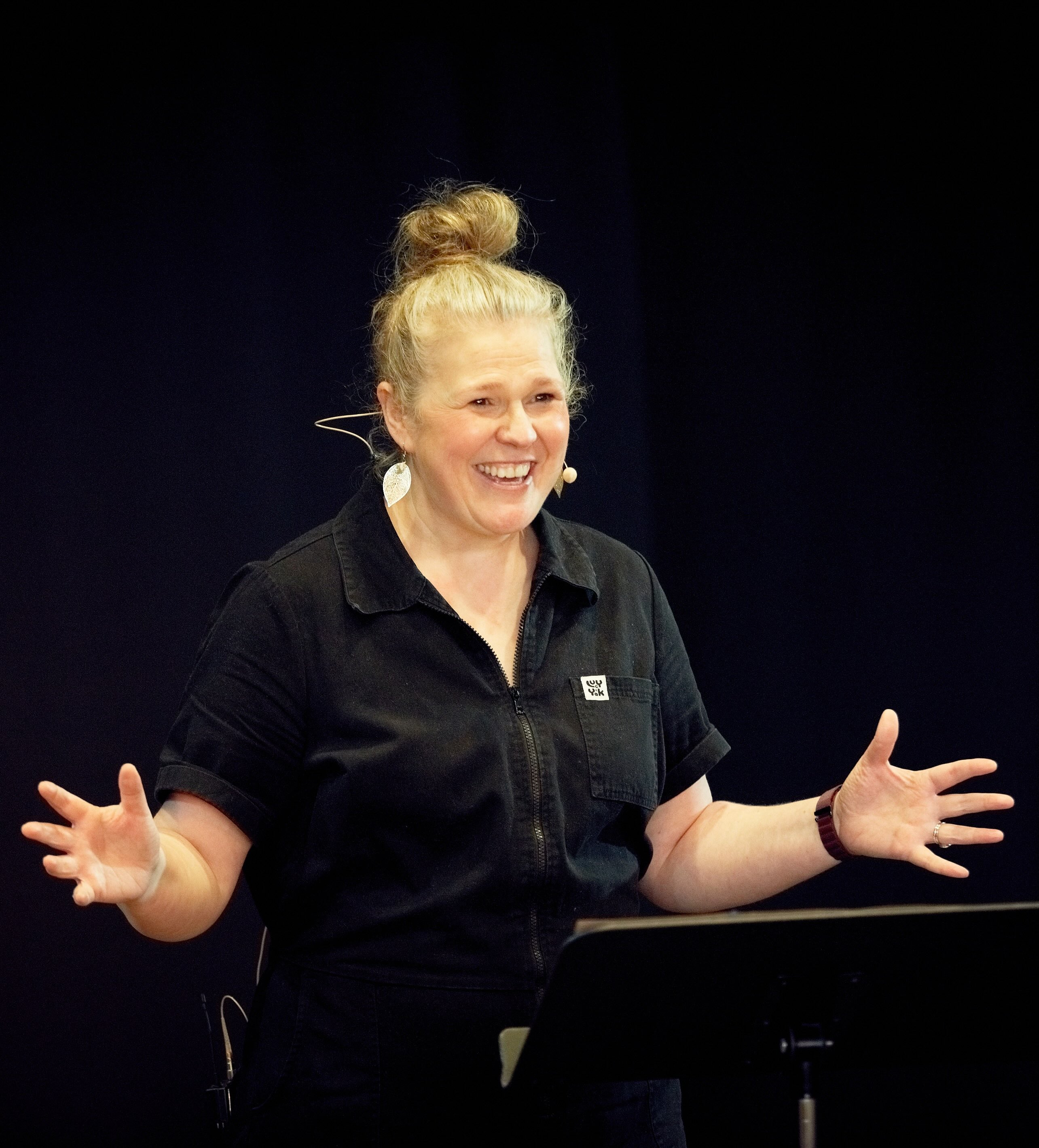We use cookies on this site to enhance your experience.
By selecting “Accept” and continuing to use this website, you consent to the use of cookies.

written by Cynthia Kinnunen, September 2025
Kathleen Turner, External Research Fellow with LCMC, has been immersed in community music practice and theory for many years and contemplation and exploration of this space is a deeply embodied experience for her. Kathleen has multiple roles: a Course Director for the MA in Community Music at the Irish World Academy of Music and Dance at the University of Limerick, a singer and songwriter, a community musician, and an arts practice researcher. Throughout all of her work, she has been grappling with the human experience of interdisciplinary work across contexts, particularly with regard to the voice. "Though there is obviously much that I care about in the space of music-making, I'm really personally invested in the experience of singing facilitators and community musicians working with their voice."
In 2024, this particular interest prompted Kathleen to launch a small study of vocal facilitators to explore their relationship to their own voice and being in their bodies. This focus on the vocal facilitator experience following the 2020 pandemic and ensuing closures, online teaching, and the subsequent return to in-person choirs is under-researched. "The piece that has been missing," Dr. Turner explains, "is the well-being of the facilitators themselves and the relationship to the voice. What has it felt like to navigate our way back to our voices? To arrive back in our bodies?" Kathleen explores this through autoethnographic writing as a means to interpret the data as well as to communicate it to an audience.
She embarked on this micro-study to better understand her personal experience of the pandemic and its impact on her relationship with singing and vocal facilitation. “I felt disconnected with my singing voice during and after the pandemic, and found the return to my choral leadership challenging after two and a half years of working online. Upon returning to working with my choir, I experienced sensory overwhelm, receiving waves of visual and aural cues from the singers in front of me. It took about a year for me to rebalance and feel comfortable in that space again.”
During the study, Kathleen interviewed two other vocal facilitators about their experiences during and post-pandemic. She discovered some overlap in their senses of fear and anxiety, particularly during the period of teaching online. However, her colleagues both experienced a return to their personal creativity and felt that the pandemic provided an opportunity for them to explore their own voices without the pressure of performance. This was in stark contrast to her own experience of the pandemic, when she grew increasingly silent.
Kathleen presented her initial findings at the Community Music Activity Commission Seminar in Tampere 2024, and this experience was significant for her. “For the first time in my academic career, I found myself unable to fully convey the totality of my presentation – when it came to my closing points, I found myself unable to speak. The subject matter was still too close. This was a great lesson for me as an autoethnographer, serving as a reminder that embodied research must be handled with care, for the primary researcher as well as other participants. I made the decision to pause the study and concentrate on my own return to singing.”
In addition to her active schedule with her CM practice and academic teaching, she has also had a few other research studies on the go along with this one.
For the academic year 2025-26 Kathleen is on sabbatical, developing creative research methodologies. During this time, she is working in Ireland with Ceol Connected, an Irish performing arts and education company that creates artistic works for young children. Founded by Dr. Thomas Johnston, Ceol Connected focuses on musical experiences with and for children with complex needs. Dr. Turner will be visiting a range of their projects, exploring ways to document their work creatively. She will also be visiting colleagues at the Creative Arts Research Institute at Griffith University in Brisbane Australia (working with LCMC Fellow Brydie-Leigh Bartleet among others) and the Centre for Arts and Social Transformation at University of Auckland in Aotearoa/New Zealand (working with LCMC Fellow Te Oti Rakena among others). “I’m so looking forward to spending this time learning from practitioners, researchers, colleagues and students, and putting that learning to work in my teaching and scholarship.”
As a Research Fellow of the Laurier Centre for Music in the Community, Kathleen is excited to see how CM continues to grow at Laurier. "I really like that conversations being had at Wilfrid Laurier are active and exciting, and willing to explore the complexity of the human experience in CM. The sense I get from Wilfrid Laurier is that it is gutsy. Much like my perception of Canada in general, it's a place where you can ask difficult questions and you can ask them kindly." We look forward to following along with the important, resonant, and very human work of Dr. Kathleen Turner, and are thrilled that she is part of our Centre's CM research network.